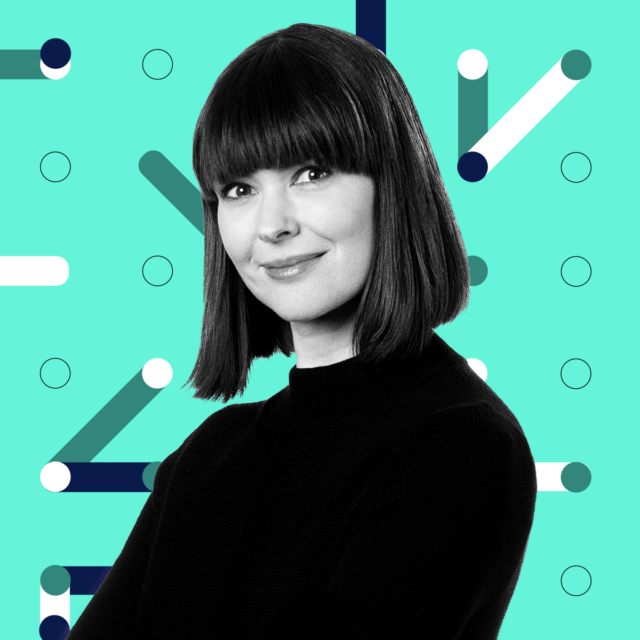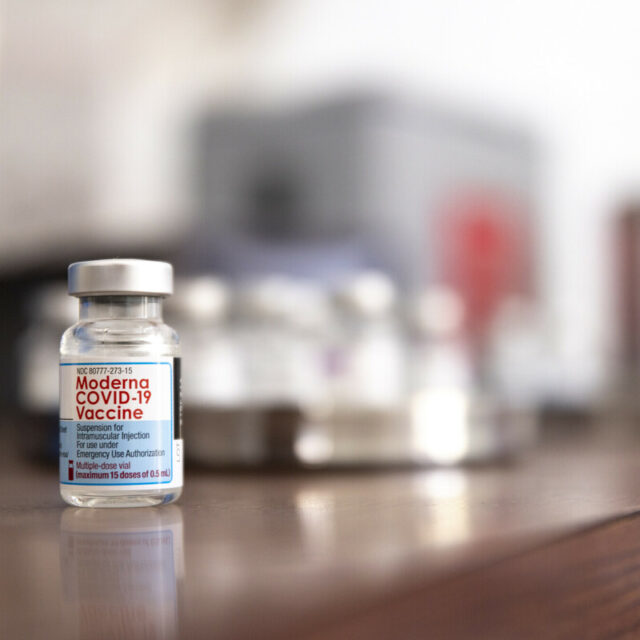Dr. Jen Gardy is deputy director of surveillance, data, and epidemiology for the malaria team at the Bill & Melinda Gates Foundation. We interviewed her as part of our #PassTheMic campaign. Here’s some of what she had to say.
In medicine, it’s all about teamwork. What I’ve learned from being in the infectious disease and public health space for years is that nothing good happens without an amazing multidisciplinary team behind it.
I’ve been lucky to participate in creating new ways of innovating in public health and, even for a small project, it takes a huge team of people. It takes epidemiologists, mathematicians, doctors and nurses, social scientists, economists, and communities on the ground.
So, if you don’t take those learnings from these small-scale projects and apply it in a global context, you’re never going to get anywhere. We have to say, the only way we can fight threats that are pandemic is through the same coordinated approach.
When people come together around a common goal
When such a huge community of people feel empowered to do something, that’s what can change the world.
Everybody has a role to play in being a catalyst for the process. Sometimes the catalyst is the physician on the front line who sees those first few cases and says “something strange is happening here,” like we saw in China with the early whistleblowers in this pandemic.
Or it takes the researcher who drops what they’re working on to focus their energy on a project to make some rapid insight, which is what math modelers at the Gates Foundation are currently doing.
When people start applying their skills to these new problems and sharing information openly, good things happen. There was a group in China that early on got a hold of a virus sample that they were able to get a good genome sequence from. They published that genomic data and shared it with the world.
Because people were open with their information, others were able to jump on that and make their own little sparks. Then, with enough of those sparks, it turns into this wildfire where you get a tremendous range of researchers all focusing their expertise in one area.
The risks if we do not have a global response to COVID-19 is that it is going to happen again and again. When you’re an infectious disease researcher or somebody working in public health, the only thing that’s predictable about pandemics is that it will happen again.
Whenever there’s a pandemic, there’s the first wave of disease, and then you get this second wave of people reflecting on it. They publish white papers and postmortems, and talk about lessons learned — and yet we never learn.
I think this is the first pandemic in recent history that’s really touched everybody. So I am cautiously optimistic that lived experience will make a difference this time.
What this has really demonstrated is what can happen when people come together around a common goal. To make a difference, you don’t have to be a front line responder, a nurse, a doctor, or a caregiver. Just by taking civil actions like practicing social distancing, wearing a mask, doing hand hygiene — everybody has a part to play.
When such a huge community of people feel empowered to do something, that’s what can change the world.
The little stories behind the headlines
The ripples of COVID-19 go far beyond just the virus. At the Gates Foundation we spend a lot of time thinking about how to make the global health world a better place. So we’re working on things like malaria, tuberculosis, and HIV in health systems that are already fragile.
I think this pandemic has demonstrated to people living in the US, Canada, and the UK that your health system is fragile. If it gets overwhelmed with something, even a well-funded university hospital can be completely overwhelmed.
Now imagine that is the everyday reality in places like sub-Saharan Africa, and those health systems are now dealing with the added disruptions of COVID-19.
So, just as much as we’re focused on the COVID-19 response, we’re also trying to understand, what does this mean for malaria, TB, and HIV? How can we address those things simultaneously?
The headlines tell a big important part of the story, but there’s all these other little stories in the background. It’s good to draw attention to some of those.
These excerpts from the interview were edited for length and clarity.
Hear more from experts in our #PassTheMic campaign, where global health experts take over celebrities’ social media channels to share the data, facts, and science we need to know to end COVID-19. Follow us on Instagram, Facebook, and Twitter for more.



